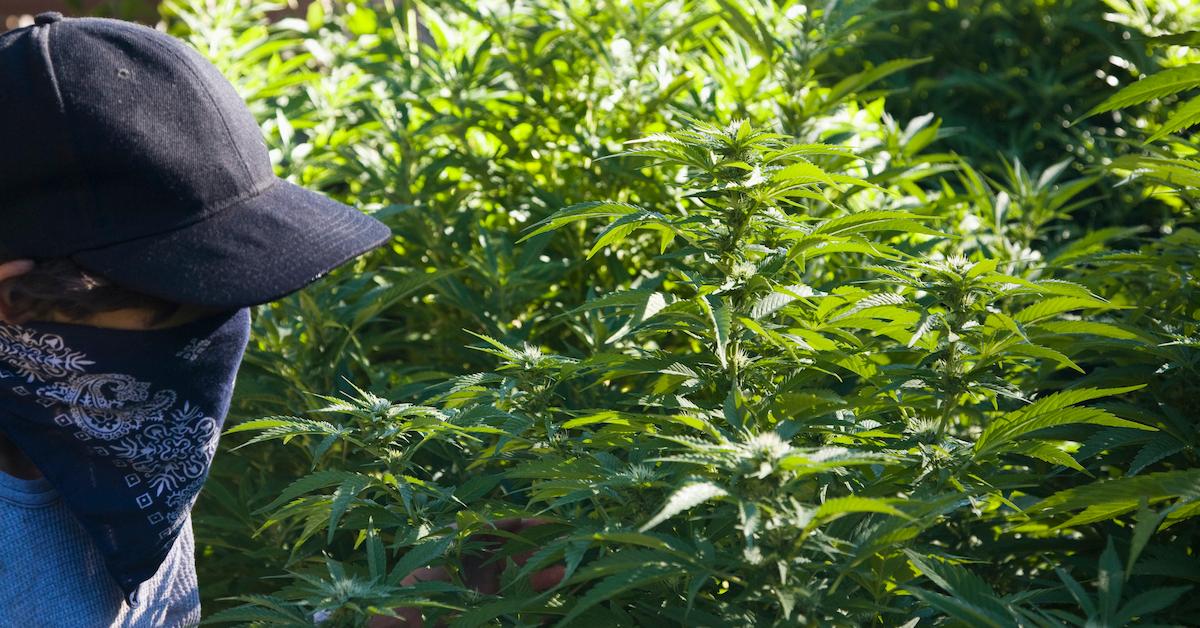Trump's EPA Approved Use of Toxic Herbicide, Despite Known Threats
Published May 27 2021, 10:43 a.m. ET

Environmentalists are painfully aware of the many injustices that were brought to our planet by President Donald Trump's Environmental Protection Agency (EPA). From effectively destroying the Environmental Species Act, to enabling the fossil fuel industry to increase its emissions, the former president had absolutely no regard for Mother Earth. Now, we're finding out Trump's EPA also re-approved the use of an herbicide called dicamba, despite reports of known threats.
“Now that the EPA’s highly politicized, anti-science approach to fast-tracking use of this harmful pesticide has been fully exposed, the agency should cancel dicamba’s recent approval, not try to defend it in court,” Stephanie Parent, an environmental health attorney at the Center for Biological Diversity stated, per a press release. “The EPA knows that anything less is likely to result in yet another summer of damaged fields and lost profits for farmers choosing not to use dicamba.”

The Trump administration's EPA overlooked reports citing threats of dicamba.
On Monday, May 24, the Environmental Protection Agency released a daunting report titled EPA Deviated from Typical Procedures in Its 2018 Dicamba Pesticide Registration Decision, which states the government-run agency is generally required to make fully unbiased environmental decisions. However, in 2018 under Trump's administration, the EPA continued allowing three dicamba-based herbicides to be used, without conducting proper research, or reviewing scientific documents that cited potential threats.
"While division-level management review is part of the typical operating procedure, interviewees said that senior leaders in the OCSPP’s immediate office were more involved in the dicamba decision than in other pesticide registration decisions. This led to senior-level changes to or omissions from scientific documents," the report reads.
"For instance these documents excluded some conclusions initially assessed by staff scientists to address stakeholder risks. We also found that staff felt constrained or muted in sharing their concerns on the dicamba registrations," it continues. Yikes.

Why is dicamba dangerous?
Dicamba, which is sprayed onto soybeans and cotton to kill weeds, has damaged millions of acres of soybeans and other types of vegetation, since its use was re-approved in 2018, according to EcoWatch. Studies also show that it can cause various types of cancer in humans. A 2018 lawsuit filed by the Center for Food Safety and the Center for Biological Diversity looked to stop the use of dicamba in products form BASF, Corteva, and Monsanto.
The U.S. Court of Appeals for the 9th Circuit overturned its approval in 2020, stating the EPA had "entirely failed to recognize the enormous social cost to farming communities," but Trump quickly attempted to extend its use through 2025 shortly before the 2020 election, in hopes to ensure its continued use, for the sake of agricultural profit.
"This report admits what we knew already: dicamba's approval was politically tainted," said George Kimbrell, the Center for Food Safety's legal director.
"EPA unlawfully promoted the profits of pesticide companies instead of following the law and sound science, putting chemical companies over protecting farmers and the environment," he continued. "The disappointing part is that EPA nonsensically continues to stand by the plainly political dicamba decision rushed through just days before the 2020 election, just five months after the court's striking down of the 2018 approval."
That said, we aren't surprised — but as usual, we're definitely disappointed.